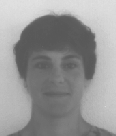 | Go to ...[Main Page] [Tutorials] [Documents] [What's new] [Feedback] |
Real-Time and Distributed Features of Ada 95by Joyce L. Tokar |
Ada Technology Officer, Tartan, Inc. 300 Oxford Dr., Monroeville, PA 15146 USA Phone: +1 (412) 856-3600 - Fax: +1 (412) 856-3636 Email: tokar@tartan.com |
| Abstract: | Ada 83 introduced the concept of a process as a language
construct called a task. Interprocess synchronization and
communication was achieved through the use of the task
rendezvous. This innovative approach generally addressed the
real-time communities need for multiprocessing. However, the
tight coupling of synchronization and communication introduced
an unacceptable amount of execution time overhead. Hence, the
use of tasks and rendezvous was limited. In addition, the
runtime model was insufficient for distributed processing. Ada 95 introduces more efficient real-time multiprocessing capabilities; including improved shared data access, asynchronous event processing, and better timing capabilities. Ada 95 also defines packages and procedures to support multiple scheduling models, interrupt handling, and distributed processing. This tutorial will examine the enhancements to the Ada run-time model including: the protected type, the requeue operation, the asynchronous transfer of control statement, and the delay until statement. It will also address the special purpose features defined in the Systems Programming, Real-Time and Distributed System Annexes. |
|---|---|
| Background: | Tutorial attendees must have knowledge of Ada and the Ada runtime model. In addition, experience with real-time systems. |
| Biography: | Dr. Tokar is a principal member of Tartan's technical staff
responsible for addressing issues related to Tartan's technology both
with respect to Ada, Ada 95, C/C++ and Tartan's embedded technology.
She is a chief runtime designer for the Tartan. In 1992,
she was appointed to the DoD's panel of Ada 9X Distinguished Reviewers.
She also participates in the SIGAda ARTEWG (Ada Runtime Environment Working
Group) and the Ada Rapporteur Group. Dr. Tokar holds a B.S. and M.S. in Computer Science from the University of Pittsburgh and a Ph.D. in Computer Engineering from Clemson University. |
Your comments/suggestions to the maintainer.